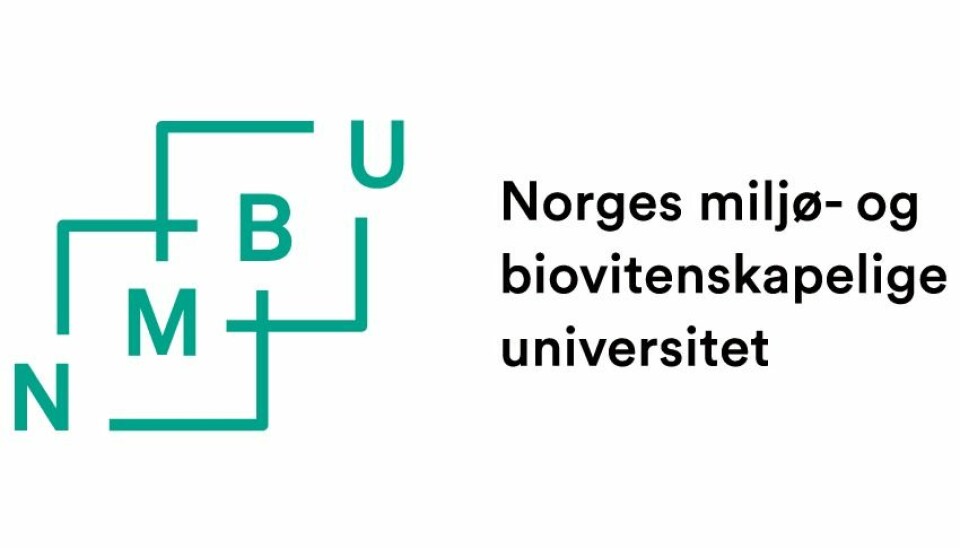Ledig stilling ved NMBU
PostDoc Radiation Risk Communication
Deadline: 20.09.2019
About the position
Faculty of Environmental Sciences and Natural Resource Management (MINA) at the Norwegian University of Life Sciences (NMBU) has a vacant 2-year PostDoc position within Radiation Risk Communication associated with risk assessment, with a possibility of extension. The position is linked to the CERAD Centre of Excellence for Environmental Radioactivity.

The CERAD Centre of Excellence for Environmental Radioactivity Chemistry was established in 2013 at NMBU in collaboration with the Norwegian Radiation Protection Authority, the Meteorological Institute, the National Institute of Public Health and the Norwegian Institute of Water Research, and is funded until 2022 by the Research Council of Norway.
CERAD has initiated long term basic research to improve the ability to accurately assess the radiological impact and risks from environmental radioactivity, also combined with other stressors. By focusing on key factors contributing to the overall uncertainties, state-of-the- art tools and methods are developed to better manage those risks.
Main tasks
The work of the PostDoc candidate will focus on risk communication associated with the impacts of ionising radiation, also in combination with other stressors. The work should reflect different areas of research at the centre (e.g., health, environment, radon, decommissioning), and include:
- Developing communication strategies based on knowledge of risk assessments of environmental stressors carried out at CERAD, including addressing uncertainties.
- Performing research on the needs and concerns of the public regarding the perception of radiation risks and mitigating actions.
- Development, implementation and evaluation of stakeholder engagement activities linked to decision-making on assessment and management of radiation risks.
- Publish results in peer reviewed literature and present research at national and international meetings.
- The work will be performed in collaboration with other natural and social scientists within ongoing national and international science projects.
Academic Qualifications and personal skills:
Required academic qualifications
Applicants must have a PhD degree in risk communication within the area of environmental science. Experience from work with ionizing radiation or nuclear risks is required, and authorisation to work with ionising radiation will be mandatory. Practical experience with stakeholder engagement is an advantaged.
Required personal skills
- Enthusiasm and creativity in research and education
- Ability to work individually and in teams
- Ability to work in a result-oriented environment
- Flexibility with respect to work tasks
- Ability to create a positive working environment
- Good capabilities in English, both orally and in writing
NMBU is working with determination to increase equality and emphasize gender balance in management teams. Knowledge of and results from active gender equality work will be given importance when recruiting to this position.
Remuneration and information
Depending on qualifications, the postdoc position is placed in government pay scale position code 1352 Postdoctoral Fellow, wage framework 24 (salary grade 59-65) (NOK 523.200 - 583.900), depending on qualifications.
For more information:
- Professor Deborah Oughton mobile: +47 99264074 deborah.oughton@nmbu.no or
- Director of CERAD CoE Professor Brit Salbu, mobile: +47 91 33 03 54, e-mail: brit.salbu@nmbu.no
Application
To apply online for this vacancy, please click on the 'Apply for this job' button above.
This will route you to the University's Web Recruitment System, where you will need to register an account (if you have not already) and log in before completing the online application form.
Application deadline: 20.09.2019
Up to ten publications selected by the applicant as most relevant must be attached to the application. If it is difficult to identify the contribution of the applicant in multiple-author publications, a short explanation about the applicant’s part of the work is suggested.
Printed material which cannot be sent electronically should be sent by surface mail to Norwegian University of Life Sciences, Faculty of Science and Technology, P.O. Box 5003, NO-1432 Ås, within 20.09.2019.
Please quote reference number 19/03926






